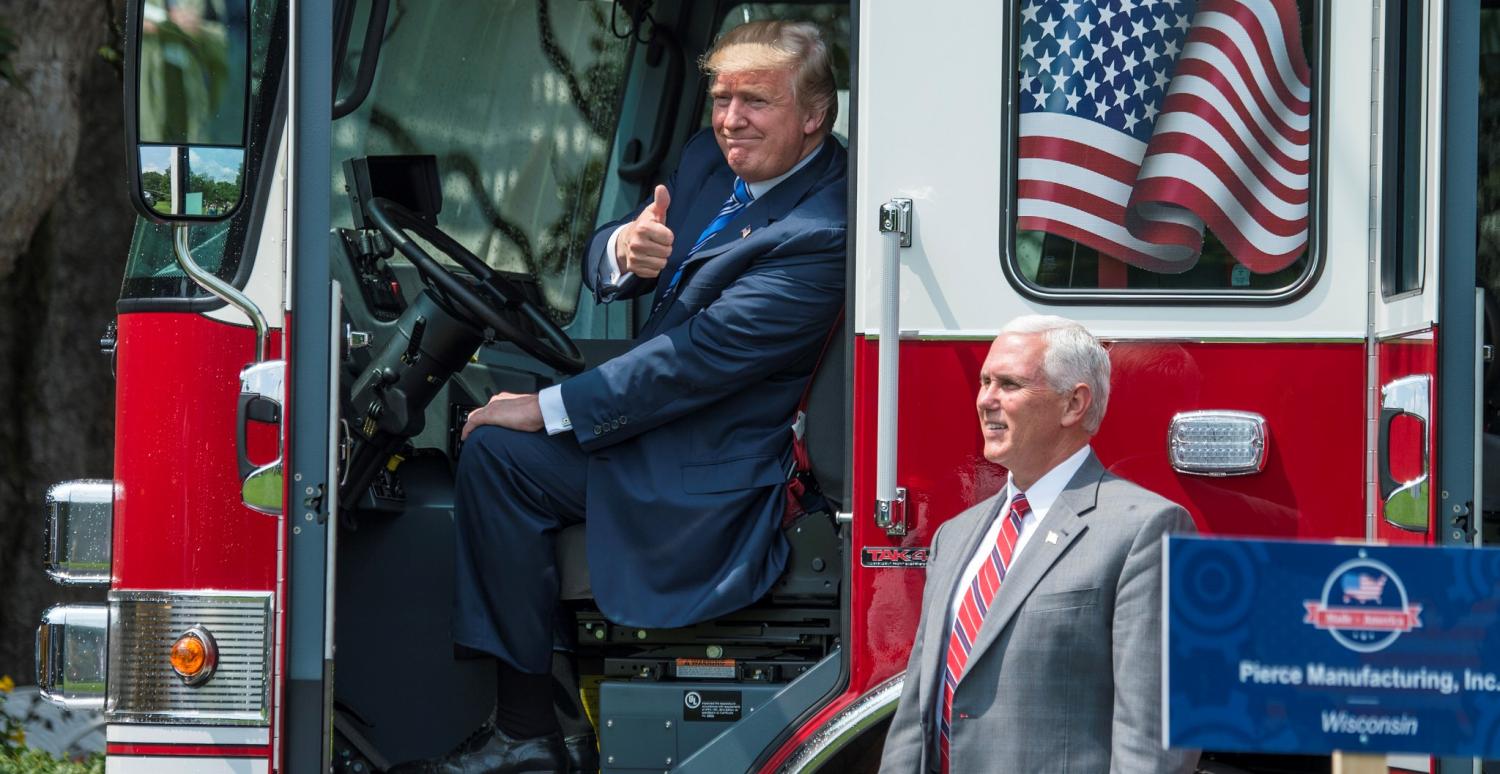Last week, the Chicago Council on Global Affairs released the results of a recent national survey on what Americans think about 'America First'. More bumper sticker than policy framework, America First has been President Donald Trump's signal for more self-interested US positions on trade, foreign affairs and international agreements.
At a time when allies such as Australia are acutely concerned by the prospect of US isolationism, the survey results offer some cause for optimism. Conducted six months into the Trump presidency, the survey showed that the US public continues to broadly support the US-led alliance system, international trade, immigration and the use of US troops abroad. The results suggest Secretary of State Rex Tillerson's claim that 'America First is not America Alone' is not just a reassuring line for nervous allies, but in fact reflects the views of voters across the political spectrum.
Here are a few highlights from the survey that was conducted across June-July and polled 2020 adults:
- 49% think maintaining existing alliances is very effective for achieving US foreign policy goals, the highest rate in the past four years of the survey.
- 65% favour maintaining a US military presence in the Asia-Pacific at its current level, while 13% favour increasing it.
- Just over half believe US security alliances in East Asia benefit both the US and its allies.
- Majorities of Americans say international trade is good for US consumers (78%) and the US economy (72%).
- Majorities of Americans would support using US troops to defend the South Korea against invasion by North Korea (62%) and to defend a NATO ally against Russian invasion (52%). Americans are less enthusiastic about using US troops in a conflict between China and Japan over disputed islands (40%) or if Russia invades the rest of Ukraine (39%).
These sentiments appear to refute the idea that Americans want to disengage from the world or that they feel national interests are incompatible with global interests. Instead, it points to a nation holding steadfast to traditional views about the value of alliances and, in some cases, more willing to defend its allies than ever before.
Unsurprisingly, America First finds it firmest adherents among core Trump supporters. Survey respondents were asked to identify themselves as Democrats, Independents, Trump Republicans and non-Trump Republicans. Trump Republicans tended to be more pessimistic about alliances and most supportive of the US withholding its commitment to defend NATO members until they put more money into their own defence. That said, Trump Republicans were actually more in favour of maintaining existing alliances and building new alliances than non-Trump Republicans.
The Chicago Council concludes that Americans overall are more interested in making the existing relationships work than filing for divorce. Appealing to Trump's base, however, will require allies to demonstrate extra efforts on burden-sharing. Complaints about allies freeriding on US security guarantees is not new, but Trump has reiterated them during and since his election campaign. NATO in particular has been in the firing line, with Trump, Tillerson and Defense Secretary Jim Mattis all issuing blunt messages to NATO that the US expects members to spend 2% of GDP on defence. One wonders whether the current administration is tapping into the public's frustration over NATO recalcitrance, or whether its own rhetoric is driving that frustration.
The survey did not explicitly ask about views on Australia. However, the wave of support following the infamous first phone call between Donald Trump and Prime Minister Malcolm Turnbull suggests Australia remains popular among allies. Australia also has a good story to tell on its burden-sharing contributions, from military spending and hosting US Marines in Darwin to joint exercises and interoperability. It's a good time to tell the story better.
Finally, the Chicago Council survey reconfirms the US public's remarkable faith in US leadership. The vast majority are confident that the US is the most influential country in the world and will deal responsibly with world problems. Perhaps it's this statistic – so clear and enduring – that is often overlooked by those who speculate that America First means an American retreat. Despite Trump's catchcry of making America great again, most Americans feel their nation is already great and are staunchly proud of its global influence. In a choice between isolationism and exceptionalism, it's the latter that Americans hold dear.

